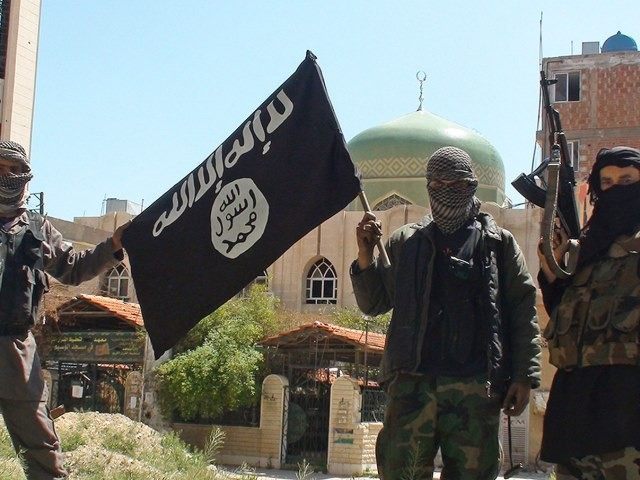A Libyan intelligence official told the BBC on Wednesday that senior Islamic State commanders are moving into Libya, along with a growing number of foreign fighters flowing into the battleground city of Sirte.
Sirte, the birthplace of former dictator Moammar Qaddafi, is largely under ISIS control at the moment. Unknown assassins have been picking off Islamic State militants, including some high-profile targets like commander Abdullah Hamad al-Ansari.
ISIS is retaliating with what Newsweek describes as a “strategy of fear over the coastal city’s population that had success in the Syrian city of Raqqa, and the Iraqi city of Mosul.” This includes such atrocities as a hanging evidently carried out by an ISIS militant in a wheelchair.
The BBC cites “disagreements between rival administrations” in Libya as an important reason ISIS has been able to consolidate its grip on Sirte. To put it more bluntly, there are two warring governments in Libya, and the discord between them has given ISIS an opportunity to establish a foothold.
While ISIS is “believed to have received support from some loyalists of the former regime,” the Libyan intelligence chief in the city of Misrata, Ismail Shukri, said foreign fighters have been reinforcing the Islamic State position. He described the fighters as a mixture of Tunisians, Egyptians, Sudanese, Algerians, Syrians, and Iraqis, the latter mostly veterans of Saddam Hussein’s old army, which means they would have useful military experience.
Along with these fighters have come ISIS leaders looking to go to ground in Libya, as their forces are hit by international airstrikes in Iraq and Syria. “Some of their members, especially those with long-term importance to IS, are taking refuge here. They view Libya as a safe haven,” Shukri explained.
Libyan military forces indicated a desire to hit ISIS in Sirte, but a skeptical BBC saw “little evidence of an imminent confrontation,” interviewing a Libyan commander who said his forces desperately needed NATO support.
Western governments are concerned enough about the ISIS threat in Libya to send in some special-forces units, and discuss training up the Libyan military, although such support will be difficult to provide as long as two warring governments both claim authority over the country.
U.S. officials confirmed that ISIS’s numbers have increased to some 5,000 fighters in Libya, even as their force in Iraq and Syria diminishes for the first time in the conflict, a reduction cited as evidence that foreign fighters are no longer flowing in to replenish the Islamic State’s military.
“The increasing ISIS presence in Libya has drawn increasing concern from American security officials,” reports ABC News.
“Two weeks ago, the National Security Council discussed how the U.S. could target ISIS in Libya, though no military options were presented,” ABC continues. “Officials say those meetings looked at ways the U.S. could work with international partners against ISIS in Libya and supporting a new unity government. Future U.S. military options could result in airstrikes targeting against ISIS and possible support for militias opposed to ISIS, though no decisions were made.”
The New York Times reports that, during a meeting with advisers last week, President Obama was pressured to approve the use of American military force against ISIS in Libya. There are concerns that ISIS could use Libya as a gateway to Europe.
The president was said to be “wary of embarking on an intervention in another strife-torn country,” so he told his aides to “redouble their efforts to help form a unity government in Libya at the same time the Pentagon refines its options, which include airstrikes, commando raids or advising vetted Libyan militias on the ground.”
The Times piece also mentions ISIS commanders heading into Libya, but it does not portray them as fleeing airstrikes to seek cover in Libyan bolt-holes. Instead, the NYT reports that top leadership of ISIS in Syria has “sent half a dozen top lieutenants to Libya to help organize what Western officials consider the most dangerous of the group’s eight global affiliates.”
If U.S. military action in Libya is approved, these ISIS commanders could be targeted by special forces operators. There seem to be few good alternatives to sending in American troops, as U.S. special-ops leaders looking for allies in Libya have found the many competing militia groups to be “unreliable, unaccountable, poorly organized and divided by region and tribe.”

COMMENTS
Please let us know if you're having issues with commenting.